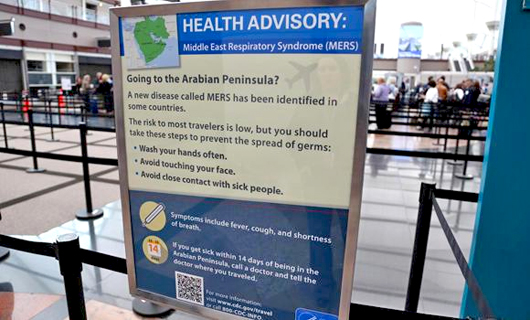
Riyadh, May 16: Health authorities on Thursday announced the deaths of another three people from the MERS respiratory virus, taking the country's toll to 160.
The death toll rose as US reports said airline crews have also been told to be on the lookout for passengers suffering from symptoms and report them to the authorities if they appear ill.
Asian transport hub Singapore said it will begin checking travelers from the Middle East for fever, tightening its guard against the MERS virus.
"We intend to commence temperature screening at air checkpoints for passengers arriving from affected countries in the Middle East from May 18, 2014," the health ministry said in a statement.
The Atlanta-based Center for Disease Control and Prevention (CDC), however, advised travelers not to change their travel plans for fear of the virus since risks remain low and the virus tends to spread through close person-to-person contact, usually relatives or health care workers.
According to reports from the US, the CDC has stopped short of calling the recent outbreak a public health emergency, while expressing its concerns about the virus.
The Health Ministry here said four patients in Riyadh and four in Jeddah, among whom six women, were discharged after making a full recovery.
The three newly infected patients in Riyadh are all women, aged 39, 54 and 70. The 39-year-old and the 70-year-old are both diabetic.
A 54-year-old woman suffering from diabetes, hypertension and chronic renal failure was among the three victims who succumbed to the deadly disease.
She had been admitted to a government hospital in Riyadh on May 3 due to clotting between an artery and a vein.
The patient had then developed respiratory symptoms on May 5.
Her condition deteriorated and she was admitted to the intensive care unit of a local hospital, but succumbed to the virus on May 13.
The other two deaths include a 72-year-old woman, who died in a government hospital in Jeddah, and another 63-year-old man, who was admitted to a government hospital in Jeddah on May 4 and died 10 days later.
US federal health officials have posted warnings at nearly two dozen airports and have reminded customs staff to be on alert for ill travelers following the diagnosis of the second MERS case on US soil.






Comments
Add new comment